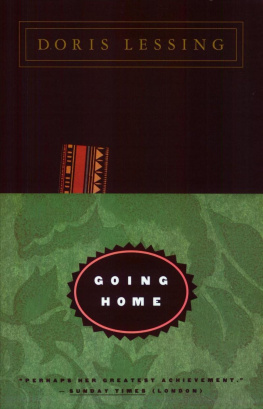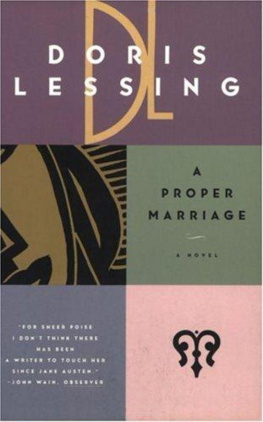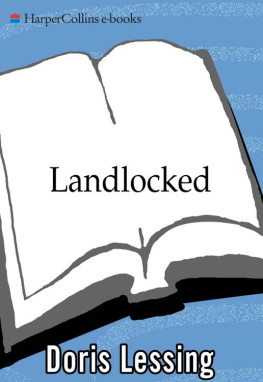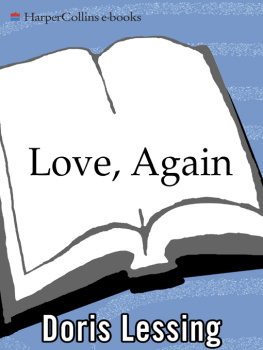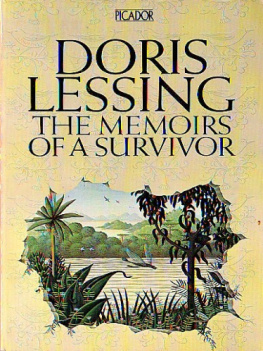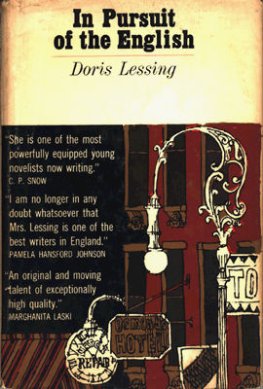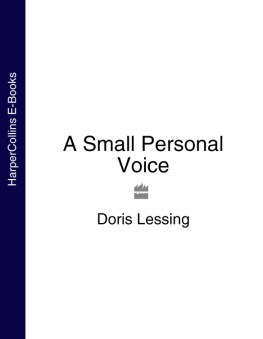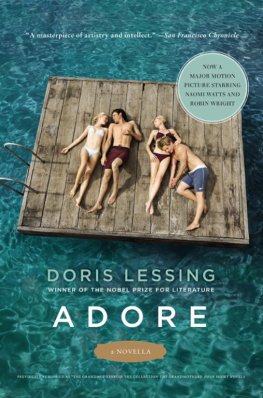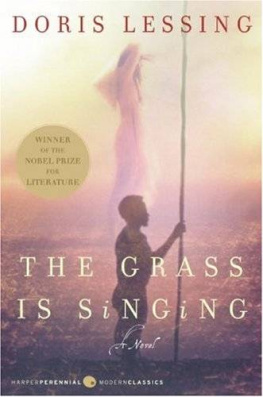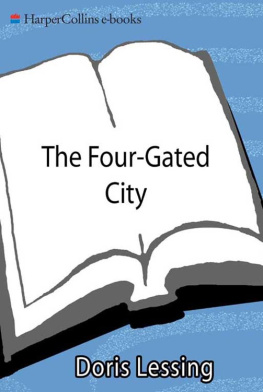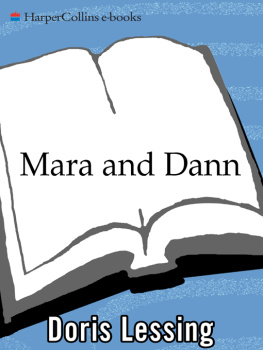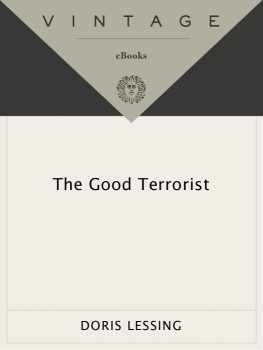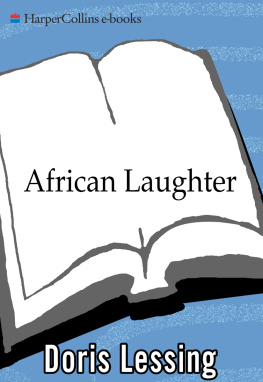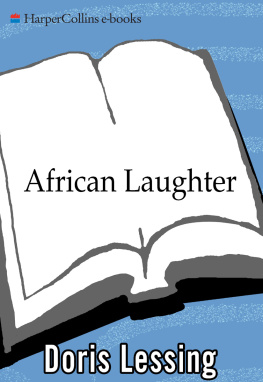Doris Lessing - Going Home
Here you can read online Doris Lessing - Going Home full text of the book (entire story) in english for free. Download pdf and epub, get meaning, cover and reviews about this ebook. year: 2009, publisher: HarperCollins Publishers, genre: Art. Description of the work, (preface) as well as reviews are available. Best literature library LitArk.com created for fans of good reading and offers a wide selection of genres:
Romance novel
Science fiction
Adventure
Detective
Science
History
Home and family
Prose
Art
Politics
Computer
Non-fiction
Religion
Business
Children
Humor
Choose a favorite category and find really read worthwhile books. Enjoy immersion in the world of imagination, feel the emotions of the characters or learn something new for yourself, make an fascinating discovery.
- Book:Going Home
- Author:
- Publisher:HarperCollins Publishers
- Genre:
- Year:2009
- Rating:4 / 5
- Favourites:Add to favourites
- Your mark:
- 80
- 1
- 2
- 3
- 4
- 5
Going Home : summary, description and annotation
We offer to read an annotation, description, summary or preface (depends on what the author of the book "Going Home " wrote himself). If you haven't found the necessary information about the book — write in the comments, we will try to find it.
Going Home — read online for free the complete book (whole text) full work
Below is the text of the book, divided by pages. System saving the place of the last page read, allows you to conveniently read the book "Going Home " online for free, without having to search again every time where you left off. Put a bookmark, and you can go to the page where you finished reading at any time.
Font size:
Interval:
Bookmark:
Dagga is a hemp drug.
Two of the men I talked to have since been deported from Southern Rhodesia to Nyasaland.
Sir Roy has now become Prime Minister of the Federation, Lord Malvern having retired.
Acknowledgements and thanks to the Editor of the African Weekly , Salisbury, Southern Rhodesia, for permission to quote letters and features from his newspaper.
NOVELS
The Grass Is Singing
The Golden Notebook
Briefing for a Descent into Hell
The Summer Before the Dark
The Memoirs of a Survivor
The Diaries of Jane Somers: The Diary of a Good Neighbor If the Old Could
The Good Terrorist
The Fifth Child
Love, Again
CANOPUS IN ARGOS: ARCHIVES SERIES
Re: Colonized Planet 5, Shikasta
The Marriages Between Zones
Three, Four and Five
The Sirian Experiments
The Making of the Representative for Planet 8
Documents Relating to the Sentimental Agents in the Volyen Empire
CHILDREN OF VIOLENCE SERIES
Martha Quest
A Proper Marriage
A Ripple From the Storm
Landlocked
The Four-Gated City
SHORT STORIES
This Was the Old Chiefs Country
The Habit of Loving
A Man and Two Women
The Temptation of Jack Orkney and Other Stories
Stories
African Stories
The Real Thing: Stories and Sketches
OPERA
The Making of the Representative for Planet 8 (Music by Philip Glass)
POETRY
Fourteen Poems
NONFICTION
In Pursuit of the English
Particularly Cats
A Small Personal Voice
Prisons We Choose to Live Inside
The Wind Blows Away Our Words
Particularly CatsAnd Rufus
African Laughter
AUTOBIOGRAPHY
Under My Skin
The Doris Lessing Reader
Doris Lessing was born Doris May Taylor in Persia (now Iran) on October 22, 1919. Both of her parents were British: her father, who had been crippled in World War I, was a clerk in the Imperial Bank of Persia; her mother had been a nurse. In 1925, lured by the promise of getting rich through maize farming, the family moved to the British colony of Southern Rhodesia (now Zimbabwe). Doriss mother adapted to the rough life of the settlement, energetically trying to reproduce what was, in her view, a civilized Edwardian life among savages, but her father did not, and the thousand-odd acres of bush he had bought failed to yield the promised wealth.
Lessing has described her childhood as an uneven mix of some pleasure and much pain. The natural world, which she explored with her brother, Harry, was one retreat from an otherwise miserable existence. Her mother, obsessed with raising a proper daughter, enforced a rigid system of rules and hygiene at home, then installed Doris in a convent school, where the nuns terrified their charges with stories of hell and damnation. Lessing was later sent to an all-girls high school in Salisbury, the capital of Southern Rhodesia, from which she soon dropped out. She was thirteen, and it was the end of her formal education.
But like other women writers from southern Africa who did not graduate from high school, such as Olive Schreiner and Nadine Gordimer, Lessing made herself into a self-educated intellectual. She recently commented that unhappy childhoods seem to produce fiction writers. Yes, I think that is true. Though it wasnt apparent to me then. Of course, I wasnt thinking in terms of being a writer thenI was just thinking about how to escape, all the time. The parcels of books ordered from London fed her imagination, laying out other worlds to escape into. Lessings early reading included Dickens, Scott, Stevenson, and Kipling; later she discovered D. H. Lawrence, Stendhal, Tolstoy, and Dostoevsky. Bedtime stories also nurtured her youth; her mother told them to the children and Doris herself kept her younger brother awake, spinning out tales. Doriss formative years were also spent absorbing her fathers bitter memories of World War I, taking them in as a kind of poison. We are all of us made by war, Lessing has written, twisted and warped by war, but we seem to forget it.
In flight from her mother, Lessing left home when she was fifteen and took a job as a nursemaid. Her employer gave her books on politics and sociology to read, while his brother-in-law crept into her bed at night and gave her inept kisses. During that time she was, Lessing has written, in a fever of erotic longing. Frustrated by her backward suitor, she indulged in elaborate romantic fantasies. She was also writing stories, and sold two to magazines in South Africa.
Lessings life has been a challenge to her belief that people cannot resist the currents of their time, as she fought against biological and cultural imperatives that fated her to sink without a murmur into marriage and motherhood. There is a whole generation of women, she has said, speaking of her mothers era, and it was as if their lives came to a stop when they had children. Most of them got pretty neuroticbecause, I think, of the contrast between what they were taught at school they were capable of being and what actually happened to them. Lessing believes that she was freer than most people because she became a writer. For her, writing is a process of setting at a distance, taking the raw, the individual, the uncriticized, the unexamined, into the realm of the general.
In 1937 she moved to Salisbury where she worked as a telephone operator for a year. At nineteen, she married Frank Wisdom, and had two children. A few years later, feeling trapped in a persona that she feared would destroy her, she left her family, remaining in Salisbury. Soon she was drawn to the like-minded members of the Left Book Club, a group of Communists who read everything, and who did not think it remarkable to read. Gottfried Lessing was a central member of the group; shortly after she joined, they married and had a son.
During the postwar years, Lessing became increasingly disillusioned with the Communist movement, which she left altogether in 1954. By 1949, Lessing had moved to London with her young son. That year, she also published her first novel, The Grass Is Singing , and began her career as a professional writer.
Lessings fiction is deeply autobiographical, much of it emerging out of her experiences in Africa. Drawing upon her childhood memories and her serious engagement with politics and social concerns, Lessing has written about the clash of cultures, the gross injustices of racial inequality, the struggle among opposing elements within an individuals own personality, and the conflict between the individual conscience and the collective good. Her stories and novellas set in Africa, published during the fifties and early sixties, decry the dispossession of black Africans by white colonials, and expose the sterility of the white culture in southern Africa. In 1956, in response to Lessings courageous outspokenness, she was declared a prohibited alien in both Southern Rhodesia and South Africa.
In 1952, Lessing published Martha Quest , the first of five novels that would form her Children of Violence sequence. The other titles, published over the next seventeen years, are A Proper Marriage (1954), A Ripple from the Storm (1958), Landlocked (1965), and The Four-Gated City (1969). The first four books are set in an African colony called Zambesia (a composite, Lessing says, of various white-dominated parts of Africa) and the last in London. While many of Marthas experiences parallel those in Lessings own lifeincluding her two early marriages and her departure from RhodesiaLessing has emphasized that the series is a study in the individual conscience in its relations with the collective and any one-to-one comparisons made between her and Martha miss the writers larger intentions.
Taken as a whole, the novels make up a formal bildungsroman (novel of education), more than 1800 pages long, about the developing consciousness of the heroine, Martha Quest. Coming of age in the first novel, Martha bridles at the stifling institutions and conventions of the white society in colonial Africa, most particularly the unjust treatment of the native population. She leaves her childhood farm and a conventional marriage for life in the citya life of political rebellion and sexual discovery. Finally, in the wake of World War II, Martha leaves Africa for London. While Lessing completed the series with The Four-Gated City , critics often have remarked on how different this fifth and final volume is from the other four. Moving beyond straightforward realism in the portrayal of Marthas life, Lessing offers a powerful apocalyptic vision of the post-nuclear world, circa 2000 A.D. that presages the experimental fiction she would write in later years, including her 1999 book Mara and Dann: An Adventure .
Font size:
Interval:
Bookmark:
Similar books «Going Home »
Look at similar books to Going Home . We have selected literature similar in name and meaning in the hope of providing readers with more options to find new, interesting, not yet read works.
Discussion, reviews of the book Going Home and just readers' own opinions. Leave your comments, write what you think about the work, its meaning or the main characters. Specify what exactly you liked and what you didn't like, and why you think so.

